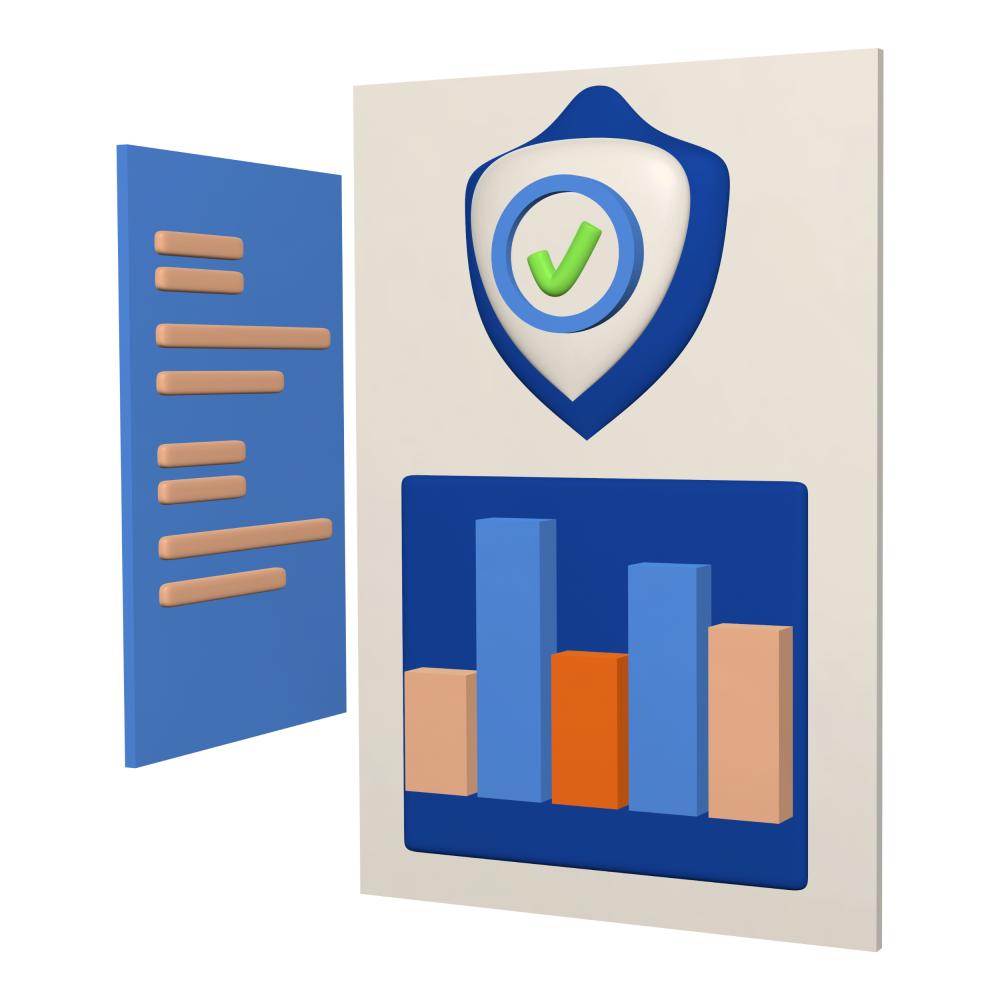The Importance of a Domain Authority Tracker
As a professional SEO specialist with over 20 years of experience, I've witnessed firsthand the evolution of digital marketing metrics. Among these, the domain authority tracker has emerged as a crucial tool. It provides a quantifiable measure to assess a website's potential ranking in search results. Utilizing a domain authority tracker allows you to benchmark your site against competitors and strategize on improving SEO performance.
The system utilizes a scale from 1 to 100, with higher scores indicating greater potential for high search rankings. This metric is not only vital for individual site analysis but also for understanding market positioning. By keeping an eye on domain authority, you can make informed decisions on improving your backlink profile.
How to Use a Domain Authority Tracker
Implementing a domain authority tracker involves several key steps:
- Access a Reliable Tool: Choose a trustworthy platform like Moz DA Checker, renowned for accurate metrics.
- Input Your Domain: Enter your domain or several domains for bulk analysis.
- Interpret the Results: Analyze the scores provided and compare them with industry standards.
- Plan Your Strategy: Use the insights to develop or refine your SEO tactics.
By following these steps, you can effectively leverage a domain authority tracker to stay ahead of the competition.
It's not uncommon for marketers to question the reliability of a domain authority tracker. Based on my extensive experience, it's crucial to understand that while these trackers provide valuable insights, they should be used in conjunction with other SEO strategies. A domain authority score is predictive, not definitive; thus, it should be part of a broader analysis, considering content quality, user engagement, and site structure.
Some users express concerns about fluctuations in scores. These changes can stem from various factors, including updates to the tracking algorithm or shifts in a website's backlink profile. Regular monitoring and adapting strategies accordingly can mitigate any negative impact.
What Qualifies as a Domain Authority Tracker Emergency?
An immediate drop in domain authority is considered a domain authority tracker emergency. Several factors can contribute to this, such as losing high-quality backlinks. First, don't panic. Evaluate recent changes in your backlink profile, verify data accuracy, and analyze competitor activity. Addressing these aspects promptly can help recover any lost authority.
Additionally, ensuring you have a robust SEO strategy in place, one that emphasizes quality content and sustainable link-building practices, can provide long-term stability to your domain authority score, minimizing emergencies.
Expert Tips for Boosting Your Domain Authority
Building a higher domain authority requires strategic planning and execution. From my years in the field, here are some practices that have consistently delivered results:
- Quality Backlinks: Focus on acquiring backlinks from authoritative sites in your niche.
- Content Relevance: Publish content that answers common user queries and integrates keywords naturally.
- Technical SEO: Optimize your site's structure and speed for better crawlability and user experience.
These practices, when implemented consistently, have the power to significantly enhance your domain authority score over time, ensuring sustainable growth and improved search rankings.
As a seasoned SEO professional with over two decades of experience, I can attest to the critical role that domain authority tools play in SEO strategies. These tools provide vital insights into a website's ranking potential, helping digital marketers evaluate backlink strength and track authority growth. At Moz DA Checker, we offer a platform where you can check both domain authority and page authority instantly and for free, enabling you to stay ahead in the competitive world of search rankings.
Domain authority tools are pivotal in determining how likely a site is to rank on search engines. By integrating data from trusted sources such as Moz and Ahrefs, these tools offer actionable insights to fine-tune SEO strategies. Whether it's assessing the competition or optimizing link-building efforts, having access to accurate domain authority metrics is indispensable for achieving online success.
How Do Domain Authority Tools Work?
At the core, domain authority tools employ complex algorithms to evaluate a variety of factors including backlink quantity, quality, and relevance. These tools assign a score from 1 to 100, with higher scores indicating greater potential for ranking in search results. Moz's proprietary metrics such as Domain Authority (DA) and Page Authority (PA) are industry standards for measuring a site's potential visibility.
For site owners and SEO specialists, using domain authority tools involves analyzing URL-specific metrics to identify strengths and weaknesses. This detailed analysis supports better decision-making regarding content strategies and backlink acquisition. The insights gained from these tools help in crafting a robust SEO strategy that aligns with industry standards and search engine algorithms.
Steps to Improve Domain Authority
Improving your domain authority is a gradual process that involves consistent effort. Here's a step-by-step approach to enhance your site's authority:
- Conduct a comprehensive audit of your current backlink profile using domain authority tools.
- Identify and remove toxic links that could harm your site's credibility.
- Focus on acquiring high-quality backlinks from authoritative sites within your industry.
- Regularly update your content to ensure it remains relevant and aligned with target keywords.
- Optimize technical SEO factors such as site speed and mobile responsiveness.
Each of these steps leverages data-driven insights provided by domain authority tools, ensuring your approach is both strategic and effective.
What Are the Benefits of Using Domain Authority Tools?
Domain authority tools offer a multitude of benefits that can amplify your SEO efforts. First, they provide a benchmark to compare your site's performance against competitors. With real-time data, you can swiftly identify areas needing improvement and act accordingly. These tools also assist in pinpointing high-authority domains worth pursuing for backlinks, thereby strengthening your site's credibility.
- Competitive Analysis: Gain insights into competitors' strengths and weaknesses.
- Link-Building Opportunities: Identify potential backlink sources.
- Authority Tracking: Monitor the growth of your site's authority over time.
By effectively utilizing domain authority tools, you can prioritize tasks that enhance your site's search engine ranking potential.
What Qualifies as a Domain Authority Tools Emergency?
In the realm of digital marketing, an emergency involving domain authority tools arises when a sudden drop in domain authority occurs without warning. Immediate action is necessary to diagnose the cause and implement corrective measures to restore ranking potential.
Steps to address a domain authority emergency include:
- Conduct a thorough assessment of recent changes made to your site or backlink profile.
- Check for any penalties from search engines and resolve any violations swiftly.
- Consult with SEO experts to implement a recovery strategy tailored to your specific situation.
Handling such emergencies with a structured approach ensures minimal impact on your site's overall SEO performance.
Every SEO professional knows the importance of domain authority update. It's a dynamic metric, reflecting a website's potential to rank on search engines. Regular updates ensure that site owners stay ahead in the competitive digital landscape. At Moz DA Checker, we emphasize the domain authority update as it helps to assess and optimize your site's performance effectively.
Consistent updates to your domain authority can be likened to tuning a finely crafted musical instrument. When done right, your site perfectly harmonizes with Google's ever-evolving algorithms. It's about making data-driven decisions to enhance visibility and impact.
How Does Domain Authority Update Impact SEO?
When a domain authority update occurs, it can significantly influence your site's search engine optimization (SEO). An increase in your domain authority score often correlates with better search engine rankings, making it a noteworthy factor for SEO specialists. Websites with higher domain authority tend to attract more organic traffic, as they appear more authoritative and relevant to search engines.
Conversely, a drop in your domain authority during an update might signal the need for an SEO strategy overhaul. It's essential to monitor these updates and adjust your approaches accordingly to maintain a competitive edge.
Ways to Improve Your Domain Authority
Improving domain authority is an ongoing effort. Here are proven steps to boost your site's score:
- Build High-Quality Backlinks: Engage with reputable sites for link-building opportunities. This can enhance your site's credibility.
- Optimize Your Content: Ensure your content is relevant and valuable. High-value content attracts natural backlinks.
- Enhance Technical SEO: A fast-loading, mobile-friendly site is crucial. Address technical issues for improved user experience.
- Audit Your Link Profile: Regular checks for toxic links are essential. Disavow harmful backlinks using Google Search Console.
- Leverage Social Media: Use social platforms to boost content visibility and attract more traffic.
Why Is It Important to Monitor Domain Authority?
Monitoring your domain authority update is vital for several reasons. First, it allows you to gauge the effectiveness of your SEO strategies over time. Second, it enables you to identify any declines and address underlying issues promptly. Finally, staying informed about your domain authority updates helps in competitor analysis, allowing you to benchmark your performance against industry rivals.
Regular monitoring through tools like Moz DA Checker provides actionable insights, helping you to make informed strategic decisions aimed at improving your site's ranking.
What Common Mistakes Should I Avoid During a Domain Authority Update?
During a domain authority update, it's crucial to avoid certain pitfalls:
- Ignoring Link Quality: Quantity does not trump quality. Focus on gaining links from reputable sources, rather than numerous low-quality sites.
- Overlooking Technical SEO: Neglecting technical aspects, like site speed and mobile optimization, can hinder your authority score.
- Neglecting Content Regularity: Irregular content updates can lead to reduced visibility and authority. Consistency is key.
By avoiding these common errors, you can better leverage domain authority updates to enhance your site's SEO performance.
How important is a domain authority tracker for my website's SEO strategy?
Understanding the importance of a domain authority tracker is crucial for evaluating your site's potential to rank on search engines. These trackers offer a numerical score, typically ranging from 1 to 100, that predicts how well a website is likely to perform in search results. They provide insights into your site's strength compared to competitors, helping you identify areas for improvement. My experience shows that combining domain authority data with other metrics, such as organic traffic and engagement rates, can create a more comprehensive SEO strategy. Consider a domain authority tracker as a vital component of your digital toolbox, allowing you to measure and refine your approach to achieving higher search rankings. Have you used any domain authority tools before?
How do I use a domain authority tracker effectively?
Using a domain authority tracker effectively requires a step-by-step approach. First, choose a reliable tool like Moz DA Checker because of its accuracy and reliability. Once you've accessed the tool, input your domain to obtain your score. A great tip here is to perform bulk checks if you manage multiple websites. Next, analyze the results against industry benchmarks and pinpoint areas needing attention. For example, if your score is lagging, it might indicate a need to strengthen your backlink profile. Finally, devise a strategy based on your findings, focusing on high-quality content and authoritative backlinks. These steps will help ensure the score's insights translate into actionable improvements. What strategy could you leverage these insights to enhance your SEO efforts?
What are the common misconceptions about domain authority tracker?
One misconception is that a domain authority score is the sole indicator of a site's success. While it's a useful metric, it's essential to complement it with other factors like content quality and user engagement. Another common myth is that small fluctuations in scores are problematic; in reality, they can be due to algorithm updates or natural changes in backlink profiles. Remember, the domain authority is a comparative metric, not absolute. It's advisable to focus on the trends over time rather than getting caught up in short-term changes. Has the perception of domain authority influenced your SEO strategy in ways that may need revision?
What should I do in case of a domain authority tracker emergency?
An unexpected drop in your domain authority can feel alarming, but it's crucial to stay calm and analyze the situation methodically. Start by reviewing any recent changes to your site or backlink profile that might have led to the score drop. For instance, lost high-quality backlinks can significantly impact your domain authority. Verify data accuracy and compare with competitors' activities for any shifts. It's also a good idea to consult with an SEO expert to address the drop, ensuring your overall SEO strategy remains stable. Taking these steps will help you address the issue effectively and potentially recover lost authority. Have you experienced a sudden drop before, and how did you respond?
How can I boost my domain authority effectively?
Boosting domain authority requires a strategic and consistent approach. Focus on acquiring quality backlinks from authoritative sites within your niche. It's also essential to ensure your content is relevant and provides value, as this attracts natural backlinks. Additionally, optimizing technical SEO elements like site speed and mobile-friendliness enhances user experience and crawlability. Consider this process like building a house: solid foundations in the form of backlinks, quality materials in terms of content, and upkeep with regular updates. These efforts have helped many of my clients see sustained improvements in their domain authority scores. What steps have you considered taking to boost your score?
How do domain authority tools work?
Domain authority tools use complex algorithms to evaluate various factors such as backlink quantity and quality. They assign a score that reflects a site's potential ranking ability compared to others. Tools like Moz DA Checker and Ahrefs collect data from multiple sources, offering a comprehensive view of your site's standing. When analyzing the scores, consider them as part of a broader context that includes page authority and other SEO metrics. This holistic view can guide you in making data-driven decisions for optimizing your digital strategies. How do you think understanding these metrics could change your approach to SEO?
What are the benefits of using domain authority tools?
Domain authority tools provide several significant benefits, including competitive analysis, identifying link-building opportunities, and tracking authority growth over time. These tools offer a benchmark to measure your site's performance against competitors, highlighting areas needing improvement. For example, finding potential backlink sources can significantly enhance your site's credibility. By monitoring authority growth, you can align your SEO efforts with performance targets, ensuring a strategic approach. Users often find these insights invaluable for crafting effective SEO strategies. Have you found any particular benefit from using these tools that transformed your SEO approach?
What should I know about domain authority updates?
Domain authority updates occur regularly as part of the ongoing evolution of search engine algorithms. These updates can impact your site's ranking potential, making it essential to stay informed. When updates lead to changes in your score, it's a signal to evaluate your SEO tactics and ensure they align with current practices. Using tools like Moz DA Checker allows you to keep a close eye on these changes, making necessary adjustments promptly. Updates offer an opportunity to fine-tune your SEO strategy, much like tuning an instrument to ensure harmony with search engines. How do you plan to adapt your strategy in response to an update?
How does a domain authority update impact SEO?
A domain authority update can significantly impact your SEO, as changes in the score may affect search engine rankings. An increase in the score often correlates with improved visibility and traffic, while a decrease might indicate the need for a reevaluation of strategies. These updates reflect the dynamic nature of SEO and the importance of adapting to remain competitive. Regular updates ensure your site aligns with evolving search engine criteria, optimizing your chances for higher rankings. Have you noticed any recent changes in your site's authority, and how did you address them?
What are the common mistakes to avoid during a domain authority update?
During a domain authority update, it's vital to avoid focusing solely on link quantity over quality. Prioritize backlinks from reputable sites to maintain credibility. Another mistake is neglecting technical SEO; aspects like site speed and mobile optimization are crucial for maintaining authority. Finally, ensure consistent content updates to retain visibility and authority. By avoiding these common pitfalls, you can better capitalize on domain authority updates to enhance your SEO performance. What steps can you take right now to avoid these mistakes and improve your site's authority?


